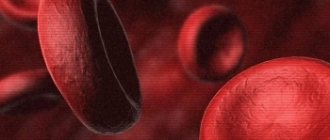During menopause, hormonal changes occur in the body of every woman. Reproductive functions fade away and characteristic changes occur. For the fair sex, menopause is a serious challenge. Folic acid during menopause helps maintain normal well-being and reduces the symptoms of pathological processes.
What is menopause?
The menopause, or as it is also called menopause, is a natural phenomenon in the life of every older woman.
At this time, the processes of extinction of childbearing and menstrual activities are launched in the female body.
Basically, the menopausal period occurs at the turn of 45-50 years. Changes in hormonal levels provoke the development of a mass of unpleasant symptoms, manifested as follows:
- The appearance of hot flashes, accompanied by a sharp feeling of heat, followed by chills.
- Increased sweating, especially at night.
- Development of insomnia.
- A pathological change in the psycho-emotional state, accompanied by an increase in irritability, tearfulness, etc.
All of the above symptoms contribute to a noticeable decrease in the level and quality of life of every woman. However, with the right selection of medications to strengthen the whole body, you can maintain excellent health and a positive attitude. The use of folic acid will also benefit:
- normalization of general well-being;
- elimination of unpleasant symptoms;
- prevention against the development of serious pathology, even life-threatening in each specific case.
Features of menopausal syndrome
Menopause is a natural process in which the level of hormones in a woman's blood decreases. After 40 years, progesterone production decreases. When a woman is over 45, she loses the ability to get pregnant. During this period, the level of estrogen, which is produced by the ovaries, decreases.
Menopause is characterized by the transition of the female body from the stage of maturity to old age. The functions of the ovaries gradually fade away. The syndrome develops over a period of 1 to 9 years and is accompanied by characteristic symptoms:
- scanty or completely disappeared menstruation,
- headache,
- increased sweating,
- irritability.
Vegetation on a woman's body increases. This applies to the back, face, and abdomen. Experts warn about skin changes. To reduce the clinical manifestations of menopausal syndrome, it is enough to adhere to medical recommendations and prescriptions. You should not take medications on your own: it can worsen your health condition.
The need for folic acids in the female body
Folic acids, or B9 vitamins as they are otherwise called, are a pharmacological preparation that includes the following components:
- Vitamin B complex;
- Sugar and calcium ions;
- Additional components that have an auxiliary effect;
- Potato starch.
Folic acid is not biologically active. For use for pharmacological purposes, it is purchased in special ampoules or in tablet or capsule form.
Folic acid in the human body takes an active part in metabolic processes that occur throughout any period of life. It is a vital component for any person and at any age, as it ensures the active absorption of amino acid compounds, as well as the secretion of serotonins and norepinephrine.
For women undergoing menopause, folic acid plays a special role. Thanks to the pharmacological effects of folic acid on the female body, the following effects can be achieved:
- Bring the functioning of the cardiovascular system of organs, blood pressure levels back to normal and eliminate hot flashes.
- Reduce the intensity of headaches until they disappear completely.
- Balance hormonal levels.
- Restore optimal psycho-emotional state.
- Normalize the production of cervical mucus, which will help eliminate dryness in the mucous surfaces of the vagina.
- Eliminate insomnia and restore healthy sleep.
- Increase your level of performance.
- Reduce the intensity of the processes of leaching calcium ions from the bone tissues of the body, which will accordingly serve as the prevention of osteoporosis.
Medical experts recommend taking folic acid not only for medicinal purposes, but also as a preventative measure. This is due to the fact that it will help normalize the level of acidity in the gastric cavity and facilitate easier absorption of protein structures.
Considering the fact that in women who have crossed the threshold of 45-49 years, the level of folic acid deficiency in the body increases, they experience a noticeable deterioration in the processes of assimilation of protein, carbohydrate and fat molecules.
To eliminate this defect and achieve maximum effect, experts recommend the use of folic acid in combination with other active substances, including additional vitamin complexes.
Indications and pharmacodynamics
Due to its estrogenic effect, drinking folic acid during menopause is recommended to reduce unpleasant symptoms, including malfunction of the central nervous system and cardiovascular system, hot flashes, migraines, hypertension, dry mucous membranes, and brittle bones.
Normalization of the central nervous system and heart support
Folic acid promotes the synthesis of serotonin, the “joy” hormone that ensures emotional stability and normalizes the functioning of the central nervous system. The beneficial effects of folate prevent mood swings, normalize sleep, and reduce anxiety and irritability.
During menopause, it increases the risk of developing cancer. Folic acid destroys the DNA of malignant cells and blocks the occurrence of cancer in the genitals during menopause.
Reduced symptoms of hot flashes
Most women (about 95%) during menopause complain of hot flashes. They arise due to a failure of thermoregulation against the background of a sharp drop in hormonal levels.
Estrogen deficiency provokes false impulses in the parts of the brain that control thermoregulation. This leads to a sharp change from fever to chills, accompanied by increased sweating. Such changes occur up to 30 times a day. You can get rid of the unpleasant symptoms of menopause with the help of folic acid alone.
Normalization of pressure
Migraines, a sharp increase in blood pressure (blood pressure), disorientation and dizziness are caused by an increase in the amount of bad cholesterol and fluid retention in the body. Taking folic acid prevents the accumulation of cholesterol and relieves unpleasant symptoms.
Restoring the water balance of mucous membranes
Many women during menopause complain of dry mucous membranes, which worsens the quality of sexual life. Doctors recommend taking folic acid during menopause to restore epidermal cells and normalize water balance. This will help avoid loss of skin elasticity and reduce discomfort in the pelvic area.
Reduced pain
Painful sensations in the back, lumbosacral region, in the joints of the lower extremities, as well as muscle spasms and migraines occur in most women during menopause. Regular intake of folic acid will help relieve pain.
Vitamin B9 deficiency in women's bodies
During the menopause, when there is a deficient content of folic acids in the female body, which is the reason for the reduced intensity of biological processes, a deficiency in tissue nutrition at the cellular level may develop.
A deficient level of folic acids in the female body can lead to the following symptoms:
- active hair loss leading to baldness;
- pathological change in the structure of the skin, manifested by the appearance of signs of premature aging;
- development of anemia;
- memory loss;
- chronic fatigue and weakness throughout the body;
- the occurrence of a depressive state;
- mental disorders;
- development of liver dysfunction;
- decrease in mental abilities.
A deficient level of vitamin B9, especially during menopause, also affects the functioning of skin and blood cells, which causes their sharp level of regeneration.
Clinical picture
Folic acid contains vitamin B9 and has a similar effect as estrogens. When menopause occurs, a woman experiences characteristic changes in her body that she should be aware of. The doctor will take into account the patient’s complaints, establish an accurate diagnosis and prescribe appropriate treatment.
Problems with the nervous system and heart
Menopause increases the risk of developing numerous serious diseases. Not only the emotional state of a woman is disrupted, but also the functioning of the nervous system. Vitamin B9 supports the production of serotonin. Heart pain, irritability, and anxiety are reduced. The same applies to emotional disorders, unreasonable mood swings, and neuroses.
Against the background of DNA destruction, the likelihood of tumor formation in a woman’s body increases. Vitamin B9 during menopause blocks pathological processes. The risk of developing malignant tumors is reduced.
Hot tides
Every elderly woman is familiar with this symptom of menopausal syndrome. Appears against the background of impaired thermoregulation due to hormonal imbalance. Due to reduced estrogen production, parts of the brain receive false signals. During menopause, a woman experiences hot flashes up to 30 times a day.
After some time, they are replaced by chills, trembling, and increased sweating. In medicine, the phenomenon is called hyperhidrosis. Blood circulation is impaired. Folic acid, which contains vitamin B9, helps eliminate this unpleasant symptom.
Headache and dizziness
The characteristic symptoms of menopause develop against the background of increased levels of homocysteine acid. Cholesterol plaques appear on the walls of blood vessels, and fluid is retained in the body. For these reasons, blood pressure rises, headaches and dizziness appear. Thanks to folates, homocysteine levels are restored.
Menopausal syndrome is accompanied not only by dizziness. Against the background of hormonal changes in a woman’s body, connective tissue suffers. Patients complain of pain in the lumbar region, joints, and limbs. Muscle spasms appear. A water-soluble vitamin helps eliminate all of these disorders.
Dry mucous membranes
Hormonal imbalance in a woman’s body negatively affects epidermal cells. Folic acid promotes their regeneration. Vitamin B9 also restores water balance. The substance maintains the quality of sexual life and avoids discomfort in the pelvic organs. Folic acid increases the elasticity of the skin.
Reduction of bone tissue
During menopause, a woman's body lacks calcium. The bone tissue becomes thinner, causing pain in the joints. Doctors warn of an increased likelihood of developing osteochondrosis.
A lack of vitamin in the female body during menopause has serious consequences. Biological processes slow down, cell nutrition deteriorates. Possible premature aging of the skin, baldness and the development of anemia. Memory problems appear, depression sets in, weakness in the body is felt , mental disorders are disturbing. It is important to consult a doctor in a timely manner and undergo treatment to prevent complications.
What does vitamin B9 contain?
Folic acid is included not only in medications, but also in various food products. That is why, before prescribing medications, experts recommend first trying to replenish the resources of vitamins B9 in the body by directly eating foods containing this component. Among a number of food products containing folic acids, their highest concentration is observed in the following ingredients:
- Quail and chicken eggs.
- Buckwheat and oatmeal.
- Avocado, peach and apricot.
- Beans and peas.
- Cod and chicken liver.
- Cereals (rye and wheat).
- Green onions and dill, as well as asparagus and parsley with spinach.
- Hazelnuts and walnuts.
- Lemon and orange.
- Sesame and pumpkin seeds.
- Vegetables in the form of cabbage, tomatoes and broccoli.
- Melon melon.
The bulk of the above food products must be included in the daily diet of older women who have entered the threshold of menopausal changes in their body. This is due to the fact that daily consumption of these foods, especially during menopause, will help eliminate negative menopausal symptoms, maintain the level of performance, as well as an optimal psycho-emotional state.
It is important to remember that thermal methods of processing the listed food products contribute to the destruction of folic acids by 89-90%.
That is why, in order to obtain the required amount of vitamins, it is necessary to consume all fruits and vegetables raw, and grain crops in the form of rye and wheat must first be sprouted.
If a woman does not have the opportunity to enrich her diet with these products, then experts prescribe medicinal enrichment of the body with folic acids. But before using medications containing folic acid, you must carefully study the attached instructions for use or follow the treatment regimen developed by a medical specialist, which indicates the exact dosage and duration of use.
Nuances of using folic acid
A specific dosage for each woman is selected individually, taking into account her general health.
If an older woman does not want to quit smoking, then the dosage of folic acids should be doubled, since tobacco smoke is a serious obstacle to the absorption of folates.
If a woman suffers from atherosclerosis, then a reduced dosage of the drug is needed. Increase the dose for women with the development of chronic gastritis, anemia and enteritis.
Folic acid levels can reach up to 400 mcg. To achieve the desired effect, the duration of treatment can vary from a month to 3.
Folic acid itself does not cause any adverse reactions and has no contraindications.
These factors can only relate to additional components when using combination drugs.
On the pharmacological market, folic acid can be found both as a single drug, in the form of tablets and drops, and as part of other medications in combination with additional complexes of vitamins and microelements. One of the most popular combination drugs are the medications Menopace and Estrovel . But before using them, you should consult a specialist, since taking them can cause various adverse reactions and complications.
Vitamin B9 complex is a necessity for the optimal functioning of the female body. It is especially of great importance during menopause, when the female body simply needs additional support.
Useful video on this topic:











